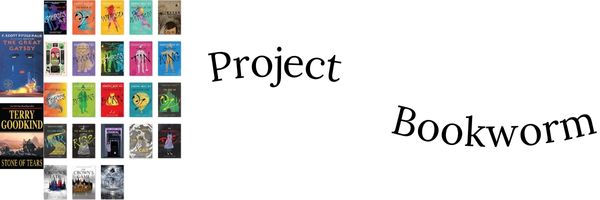Sorry I missed last week. President’s Day weekend was a work-heavy three-day weekend for me so by the time we got to Tuesday, not only was my mind on Monday, I was utterly exhausted. Sometimes, something has to give. Last week, it was the blog. Now, to move forward, we’re going to continue with the Revisited series by looking at the idea of speculative fiction straining belief. It’s really important in order to make the more fantastic elements acceptable to a reader. First, let’s get into the details.
Drawing from the Well
Nothing and I’m not happy about it. Life has been a lot lately so the book has taken a back seat. I’m SO CLOSE to the next step and it’s crazy that I didn’t find time in two weeks to finish this last additional chapter off, but here we are. I desperately hope that next week I have better news on this front.
Pages 309
174,390/178,445 Words
Filling the Well
Despite it being a terrible writing fortnight, it has been good on the reading end. I finished five books, including the rest of the Dorothy Must Die Stories. That was a great ride and one I’ll remember for a while. I also read a short story called Instar that totally bent my brain but felt a little underdeveloped. I still liked it. Now, I’m trying to finish The Great Gatsby. This falls into a narrow niche of books from around the same time period that are hard for me personally. The plot is tenuous at best. Characters have motivations, but the main/POV character is more of a voyeur to what is happening. They have the revelation, but they don’t do much to impact the plot. I don’t like that, but Gatsby is a classic so I wanted to listen through it.
23/105 for #ProjectBookworm2024
Well Chat
Ya know, I was pretty consistent for a long time. Looking back, I don’t know how I did it. This next Revisited post covers my Suspension of Disbelief post from March 27, 2019. This is a really important aspect of writing, especially speculative fiction.
After re-reading my examples from this post, I can’t help but laugh. One thing that I didn’t account for in the OP was genre. Speculative Fiction requires far more suspension of disbelief than any other major genre. Its fans, however, are more willing to engage in that suspension than tourists of the genre. That is why I and my son will react one way and my wife and daughter react another. This is good to keep in mind as you write because if your audience are avid fans, you can pull further and harder on that belief tether. If you’re going for a wider appeal, though, you have to temper that to keep your potential readers engaged.
None of that is what I planned on writing, but I thought it was important to mention. Another aspect of straining belief is how many books you’re trying to hold your readers through. If it’s one book, you can’t go as deep as you can in a long series. With a series, you establish benchmarks with each book. When a reader closes a book, the feeling they had in that book stays. That, however, becomes the new baseline from which they will dive into the next book. This allows you to take your speculative elements further.
The important part is the limit. With speculative fiction, you have to keep as many aspects, elements, and actions grounded in a sense of reality as possible. For my first book, I had magic wielders, a dragon woman, and a possessed sword that talks. That’s a lot of tension, so how did I handle it? I built up to the extremes of each of those points. The dragon woman started as a silent companion, as much a wild animal as anything else. She eventually showed she could think, talk, and even use magic. The magic wielders showed up using small bits of magic to show how things worked and then I built on that to show power and creativity. The sword just started as being noisy. We’ve all had devices make noise; this was a natural progression. Then those noises became words, then a voice, then a presence. It’s escalation in its purest form.
That’s how I held readers. I didn’t jump in with all the fantastic elements right away. I started as close to our reality as possible and then took readers on a journey. In Book II, it starts similarly. Things are quiet. Characters are dealing with the aftermath of the first book and they’re doing it in human ways. Then, the next journey begins and the fantastic shows up. Yes, it does so sooner, but readers expect that. That’s why it also shows up bigger than before. I can’t wait for you to read it.
So those are the basic principles. 1. Know your audience and don’t strain belief beyond their tolerance. 2. Avoid jumping the shark. Keep your runway only as long as your book/series. 3. Build up to the most fantastic elements of your story, but start as close to reality as possible.
I hope this helps. Have a great week!
May the tide carry you to safer shores.
BSG







